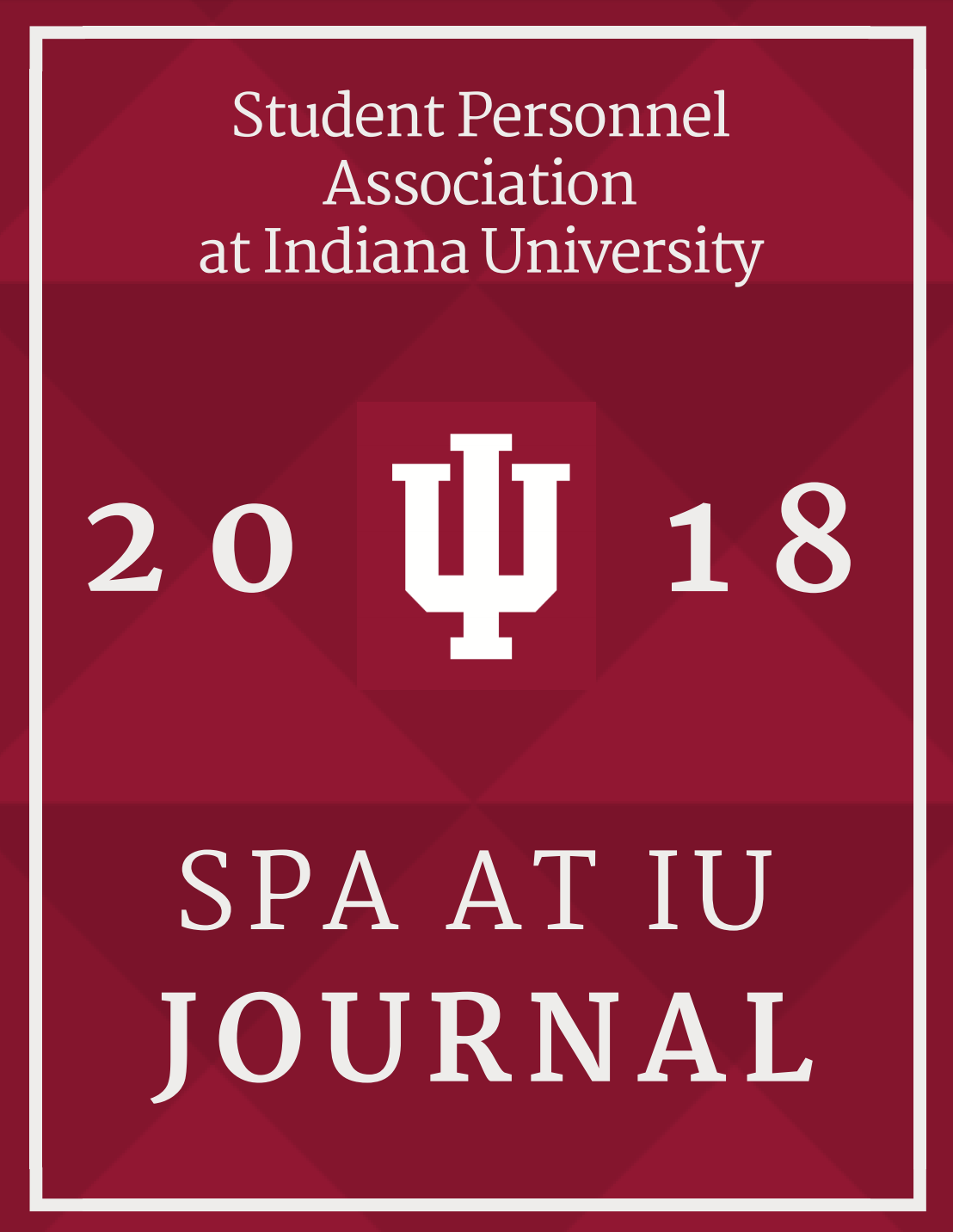Physical Environment as an Indicator of Cultural Validation in Counseling and Psychological Services and the Center for Human Growth at Indiana University
Main Article Content
Abstract
With minority groups constituting roughly forty percent of the United States population (Miller & Garren, 2017), there is a growing number of students on college campuses with non-majority identities. Psychological well-being is a critical component of overall college student success, and individuals of underrepresented identities still experience perceptions of marginalization and isolation that accompany barriers to receiving psychological support (Ahmed et al., 2011). This study uses the Culturally Engaging Campus Environments (CECE) Model to examine cultural validation through the physical space of two offices that provide mental health services for students on the Indiana University Bloomington campus. The study names elements of each physical space that validate minority identities within the counseling space. Additionally, the study outlines areas of improvement for both services to offer to represent or support specific non-majority identities.
Downloads
Article Details
Authors who publish with the Journal of the Indiana University Student Personnel Association (hereinafter “the Journal”) agree to the following terms:
By submitting to the Journal, the author grants to the Journal the non-exclusive right to reproduce, translate (as defined below), and/or distribute your submission worldwide in print and electronic format and in any medium, including but not limited to audio or video.
The author agrees that the Journal may, without changing the content, translate the submission to any medium or format for the purpose of preservation.
The author agrees that the Journal may keep more than one copy of this submission for purposes of security, back-up and preservation.
The author represents that the submission is his/her original work, and that s/he has the right to grant the rights contained in this agreement. The author also represents that his/her submission does not, to the best of his/her knowledge, infringe upon anyone's copyright.
Authors are able to enter into separate, additional contractual arrangements for the non-exclusive distribution of the journal's published version of the work (e.g., post it to an institutional repository or publish it in a book), with an acknowledgment of its initial publication in this journal.
